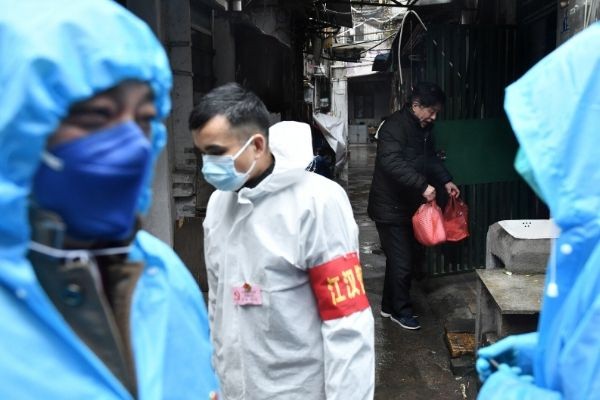
Recent news about the coronavirus is a bombshell saying it might be airborne, meaning it can linger in the air after the carriers have left. This information was alleged by an official source in the Chinese bureaucracy.
The source is an official in Shanghai who related the information that it can spread by air as a threat to more infection.
Many maladies like the flu, measles, and tuberculosis propagated this way, also make outbreaks unpredictable and containing difficult.
Worldwide infection rate is now at 80,000 plus cases and 2,800 souls taken by it which were spread through coughs, sneezes, or close contact.
Should airborne infection be possible, even without the host around, it will allow the disease to ramp up and cause more infection than prior assumptions.
An aerosol infection will make it hard to pinpoint who among the patient's contacts are at risk, and make it hard to contain the danger to medical personnel, with a possible airborne coronavirus.
An anonymous official of the Chinese Centre for Disease Control & Prevention assailed the claim as false and rumour-mongering. In fact, even a virus expert in Australia was disproven with the same claims.
According to Zeng Qun, deputy head of Shanghai's Civil Affairs Bureau, in a recent presson, "The virus spreading through the air." He was disputed later by other Chinese officials, with his remarks.
Zeng Qun said according to a report by the China Daily,"Aerosol transmission refers to the mixing of the virus with droplets in the air to form aerosols, which causes infection after inhalation, according to medical experts."
Transmitting the virus can be through droplets from infected lungs that is releasedwith cough and victims will breathe in the infection and wait till the virus is activated.
Droplets will fall to the ground after a sneeze or a cough, but research has turned up that the coronavirus can live for 9 days on hard surfaces, and cause infected without breathing in.
Viral transmission through makes it virulent, even if in small amounts like aerosol form, and can float in the air which makes it dangerous.
If Zeng's information is accurate then viral transmission after a host has gone by in corridor might infect anyone in the same space.
The bulk of coronavirus cases are concentrated in China, other countries have cases but not as many compared to the People's Republic China (PRC).
Feng Luzhao, a researcher at the Chinese Centre for Disease Control and Prevention said there is that transmission via the air is not confirmed yet, with no proof to back up the claim.
According to Dr Wang Guiqiang, director of the infectious disease department of the Peking University First Hospital," the new clinical guidelines accepts that not only can the coronavirus be airborne, but the virus can be transmitted if someone was exposed to high concentrations of aerosol in a relatively closed environment for a long time."
Other ways to keep the viral hosts or possible hosts is to cover the mouth, clean hands, keep to yourself, sterilize everything in the house like handles, table, and especially the toilet seat too.
Whether or not the virus can linger in the air, and jump to people is not sure, but better to be more cautious than usual. All the possible procedures to keep infection at bay is important, whether the coronavirus is airborne or till studies prove it.
Related article: Clinical Trial Results of Chloroquine Phosphate in COVID-19 Infected Patients








